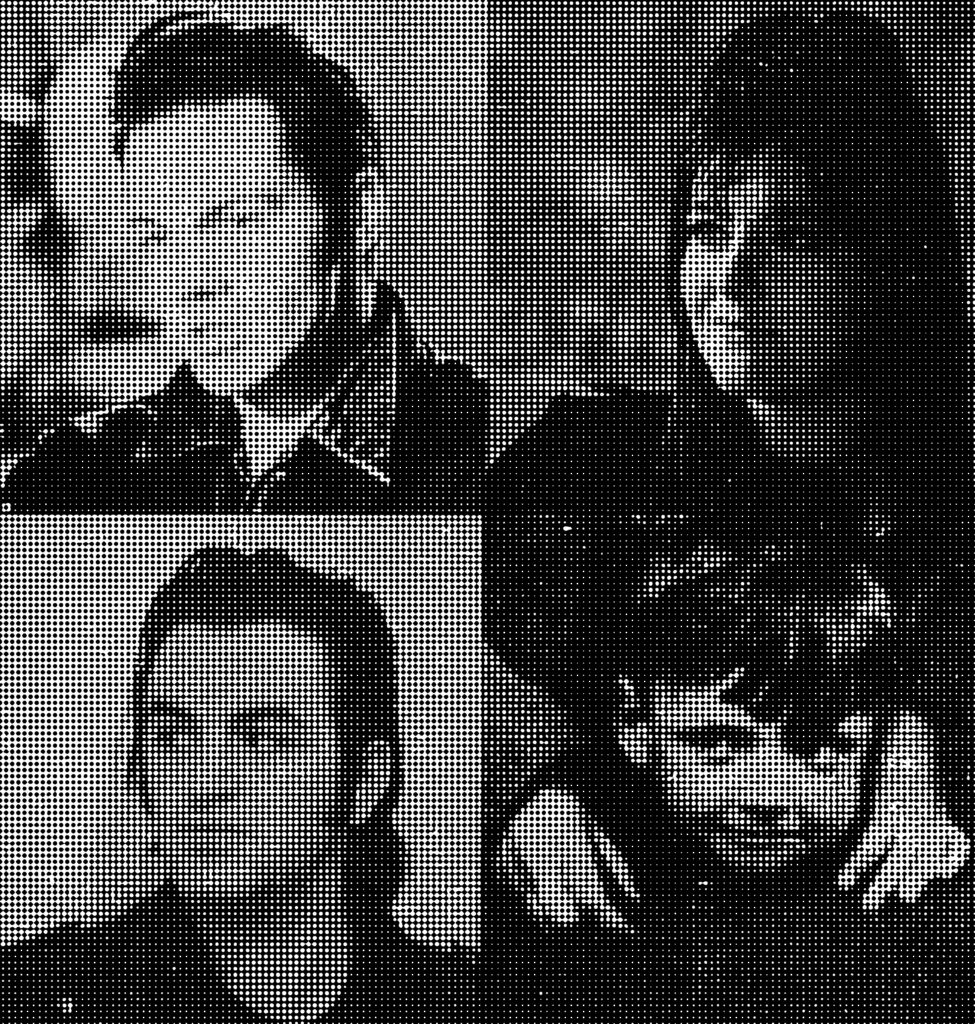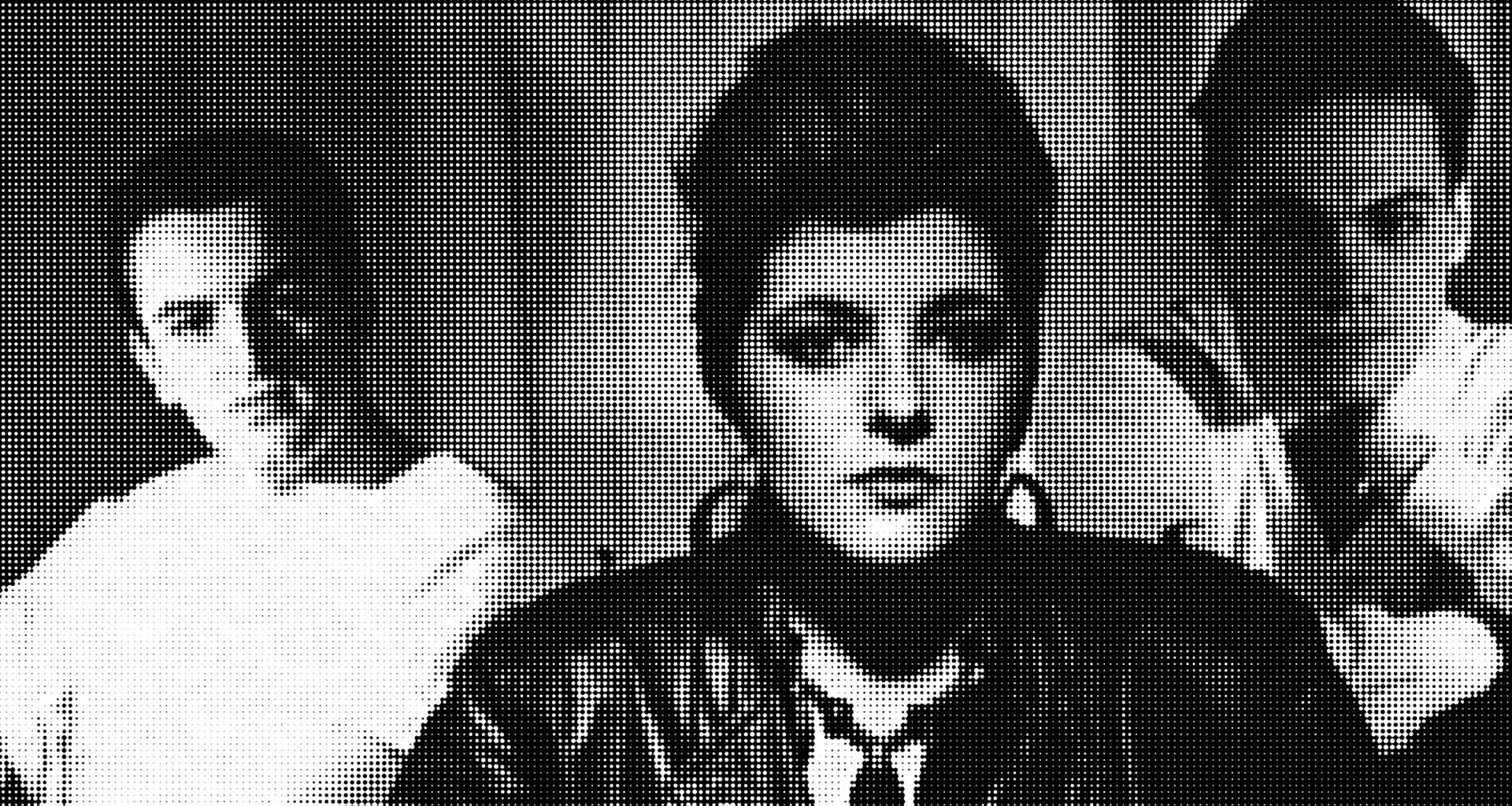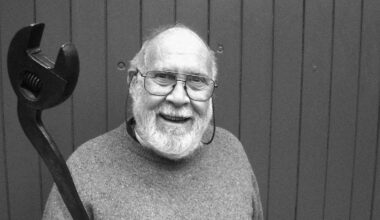Cool band, good-looking singer, major label deal, infectious tunes. the Top 40 beckoned for 1980s Glasgow outfit Secession… some 18 years after the death of frontman Peter Thomson, we tell the story of a group who shouldn’t have fallen by the wayside
The Poetry Club, SWG3, Glasgow, 6 December 2018: The Vaselines are performing ‘Touch’ and ‘Michael’, two songs written by singer/songwriter and band leader Peter Thomson, originally released by his band Secession in the mid-80s.
The occasion is the release of ‘2001 (I’m Afraid Of Getting Old)’, a collection of demos recorded by Secession in the 1980s and a clutch of newer Thomson songs from the start of the millennium. They serve to shine a light on a prodigious songwriting talent who didn’t receive the recognition he deserved, and whose band was put through the wringer by a familiar combination of circumstance, personalities and music business shenanigans.
Sadly, Thomson himself isn’t at the event. He took his own life in March 2001 after years of depression and alcohol dependency. He left behind an all-too-concise legacy, which the release of these demos by his widow Margaret and his manager Hamish Brown seeks to address.
Buster Brown’s, Edinburgh, late 1983: Secession are performing. The band had self-released a single, ‘Betrayal’ earlier that year. The track and its B-side, ‘Reflections’, were remarkable songs, nodding to the distinctively sparse Martin Hannett production of Joy Division, while also highlighting the unique vocal and songwriting abilities of Peter Thomson.
Thomson was born in the Dennistoun district of Glasgow in 1961, a working class area dominated by tenements that had escaped the concrete tower blocks colonising other suburbs of the city. Secession was formed by Thomson in 1983 with brothers Jack and Jim Ross, and Thomson’s on-off girlfriend Carole Branston. Their synths-with-guitars approach stood out in a Glasgow scene that also produced bands like The Wake, acts that developed a cult following largely as a result of relentless gigging.
It was Thomson who set Secession apart. His enthralling vocals, clear musical vision and lyrical erudition navigated a pathway between impenetrable gloom and romantic levity; he was influenced by Eno and Roxy Music and wrote lyrics that were inspired by movies such as ‘The Godfather’, ‘Taxi Driver’, ‘Apocalypse Now’ and the films of Stanley Kubrick. He was also deeply troubled from an early age.
“Peter had a terrible upbringing, as tough as it could be,” says his widow, Margaret. “That came out in a lot of his songs. But as much as there was a kind of darkness, something a wee bit disjointed, he had this incredible ability to make tunes you could dance to.”
“Glasgow was a pretty unforgiving place in the early 1980s,” recalls former Sounds journalist John Dingwall, whose band Rosie & The Stooges played with Secession at the city’s venues. “You had to be tough and men just had to be men. Peter was always a fairly abrasive character. Back then he might have been called rebellious, but I think nowadays it would have been clear that he had unresolved mental health issues.”
In the audience at Buster Brown’s back in 1983 was former car salesman Hamish Brown.
“I was blown away when I saw them performing,” remembers Brown. “In a drunken state I went over to the band at the bar and told them how awesome they were. I also told them that I knew Bob Last of Fast Product, who managed The Human League. I only knew Bob because I’d sold him a car! I got hold of Bob, played him their songs, and he thought there was something special about Peter’s vocals.”
At Last’s suggestion, Brown became their manager. With demos of the upbeat ‘Fire Island’ and the band’s celebrated early single ‘Touch’, Brown negotiated a deal with Beggars Banquet. When both Ross brothers quit the band, Thomson hired Charlie Kelly to play additional synth and percussion, while James Seenan joined on bass.
“That was when Peter decided that to reach the success he believed he could achieve, he alone was Secession, and everyone else – including Carole – would be put on wages,” says Brown.
Two singles were produced and mixed with John Rocca from Freeez, and the band were scheduled to record a full album.
“‘Touch’ made an impact in Germany,” says Brown. “Our label there requested a video as they thought it could be a Top Ten hit, but Beggars refused because they believed it would be successful anyway. Unfortunately sales slowed and Peter and myself felt that the label had cost us a hit. We took them to court to release us from the album commitment and we won.”
A fresh deal with Siren was struck on the basis of several demos that were recorded at Bob Last’s office. It’s these previously unreleased tracks that form the first half of a newly released Peter Thomson album. Among these recordings is stand-out track ‘Michael’, written about Michael Corleone from ‘The Godfather’; outwardly ‘Michael’ was an upbeat love song, but it was in fact about persuading someone from following a nihilistic path.

Secession were dispatched to New York to record with Nile Rodgers, but the session fell through, either because Thomson rubbed him up the wrong way or because of Rogers’ fee, either way they ended up working with Lew Hahn, who’d produced the likes of Bee Gees, Aretha Franklin and Chaka Khan, on the singles ‘Michael’, ‘Promise’ and ‘The Magician’.
Released in 1986, ‘Michael’ should have been a massive hit, but in a moment of corporate brainfade, Siren didn’t press sufficient quantities, leading to a major spat with the irascible Thomson.
“They pulled the record to flex their muscle,” believes Margaret. “They wanted him to take a couple of the members of the band out and do some other underhand stuff, and he just wouldn’t. This was their way of letting him know they were in control.”
“The ‘Michael’ single fiasco triggered memories of the problems we’d had with Beggars Banquet, and Peter and myself blamed Siren,” says Brown. “Peter really took it to heart and started pushing Carole and Charlie away. That was the start of Secession splitting. Peter started drinking more and more and he would only appear when we released another single.”
In spite of the band fragmenting, there was still an album obligation. Thomson hadn’t been impressed with Lew Hahn’s production of the tracks they’d recorded in New York, and when contrasted with his original demos you can perhaps see why. Hahn had overlooked the depth of mixed emotions running through Thomson’s lyrics and rendered them as bright, optimistic pop tracks.
‘A Dark Enchantment’, recorded in Edinburgh with Wilf Smarties (who went on to work with Wet Wet Wet and Kylie) and released in 1987, has a very different sound. Thomson had taken on board what he’d learned from Hahn, but applied his own stamp, giving tracks the nuanced contrasts that best suited his music.
Listen to the album version of the dark, hypnotic ‘Sneakyville’ and you hear something much closer to Thomson’s original demo. The songs on ‘A Dark Enchantment’ alternated between tender, heartfelt moments and tracks like ‘The Wolf’, which detailed a menace preying on young children. Siren pressed up a mere 1,000 copies of the LP, but the band was already on the rock. It never got the promotion or recognition it deserved.
Curiously, the label suggested a second album (even proposing Tina Weymouth as a producer), so Thomson knuckled down to assemble new songs. The process was thwarted by The Vaseline’s Eugene Kelly poaching his brother Charlie and James Seenan for a stint supporting Nirvana. For Margaret, it was clear Thomson’s heart was no longer in it.
“He never wanted to get into the big label war again,” she says. “He didn’t want to sell his soul. He wanted to take control of his music.”
And that was the end of Secession, but thankfully it wasn’t the end of Thomson’s songwriting.
“Throughout his life, all Peter’s time went toward writing music,” recalls Margaret. “I remember he was always picking up his guitar and writing tunes. He had a wee dictaphone, and he was always putting random phrases down.”
A few tracks were picked up by Channel 4, and Thomson tried to start a new band called The Process, but it had already floundered before it began. With him constantly recording over what he was writing, all that remains are the five tracks that can be found on the second side of ‘2001 (I’m Afraid Of Getting Old)’, recorded shortly before his death.
“In the early 2000s, I had my own music publishing company,” says Brown. “I’d be in Glasgow regularly and I would always stop off at Peter and Margaret’s house for a cup of tea. I though that if I could get Peter writing songs then maybe it would stop him drinking so much. We would spend hours together playing new tracks.
“I kept asking if I could pitch them to other bands, but Peter was reticent. He eventually gave me some tapes, and shortly after, I received a phone call from Margaret telling me that Peter had taken his own life.”
“I was angry and hurt,” admits Margaret. “I gave everything of Peter’s away. The only thing I kept was his guitar, which I eventually gave to Gordy Goudie, who worked with Echo & The Bunnymen and more recently Simple Minds. Everything else went – all his keyboards, his Emulator, everything.”
The demos that have just been released were on the cassettes that Thomson handed to Hamish Brown.
“I was going through a divorce so I didn’t treat them with the priority that I should have,” admits Brown. “I left them in a filing cabinet and I was amazed when I found I still had them. When I played the songs for the first time in 17 years, I cried. I realised I was hearing Peter’s expressions of despair.”
Among the tracks were multiple takes of an instrumental titled ‘2001’. Led by a house-y piano that somehow never manages to become uplifting, it was Thomson at his absolute best. Upon hearing it, Margaret immediately recalled hearing her husband singing lyrics along to the piece, but Brown was at a loss to find any accompanying vocals on the tapes.
“I don’t know why, but one day I listened to all the cassettes again,” recalls Brown. “I heard one of those ‘2001’ instrumentals and just dismissed it as a version that wasn’t as clean as the one that we’d picked for the album. After a minute passed, Peter started singing a guide vocal.
“He sings the line ‘I’m afraid of getting old’, a couple more lines, and then abruptly stops the four-track. It was probably the last thing Peter recorded. It felt like he had pushed me to find it.”
“I could shut my eyes and it was like he was back in the room with me,” says Margaret.
That vocal version concludes the album of demos issued by The Process label, named after the band Thomson had briefly started after Secession broke up. It’s difficult not to be moved by his lyrics, or be affected by the eerily abrupt stop midway through the song, and the silence that follows.
Brown only remembers his time working with Thomson fondly, in spite of all of his issues.
“We started out as manager and artist, but I couldn’t work with anyone that I didn’t consider a friend,” he says. “We were thick as thieves. It was Peter’s vocals and amazing ability to transform dark and twisted lyrics into exquisite pop songs that drew me to his songwriting. It was a pleasure to be part of Peter’s life and his musical journey.”
As we conclude, Margaret recalls the day that Thomson proposed to her rather than the demons that took him from her.
“He was so nervous,” she says. “He called Jack Ross and told him to remind him the next day that he actually did propose, and when I said yes he went straight on the phone to tell Jack. It was funny at the time. I do miss him. We did have some laughs.”
‘2001 (I’m Afraid Of Getting Old)’ is out on The Process. Proceeds from the album will support the work of the Joshua Nolan Foundation, a charity whose aim is to reduce suicides in Scotland. For more, visit joshuanolanfoundation.org. The writer’s fee for this feature has been donated to the Foundation.






